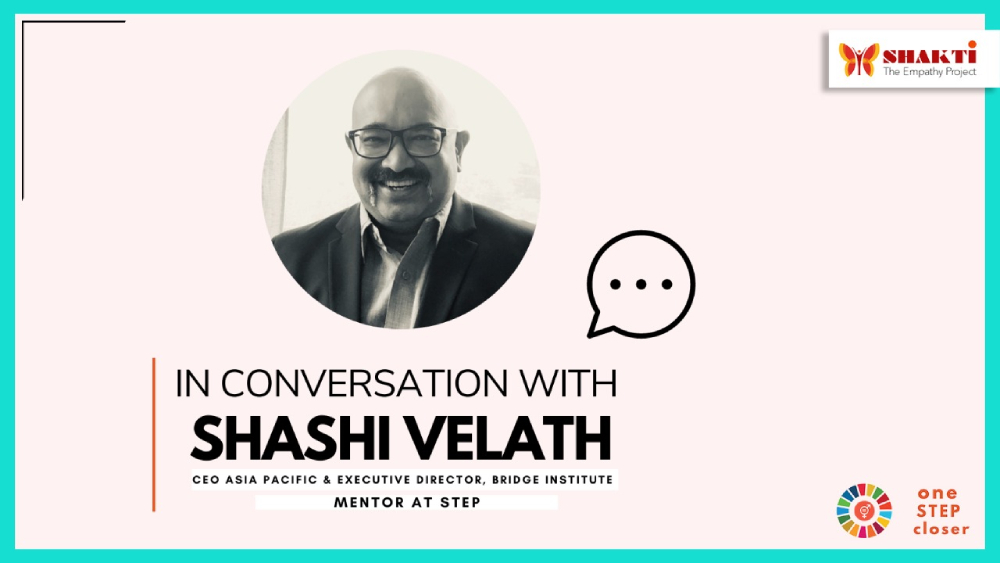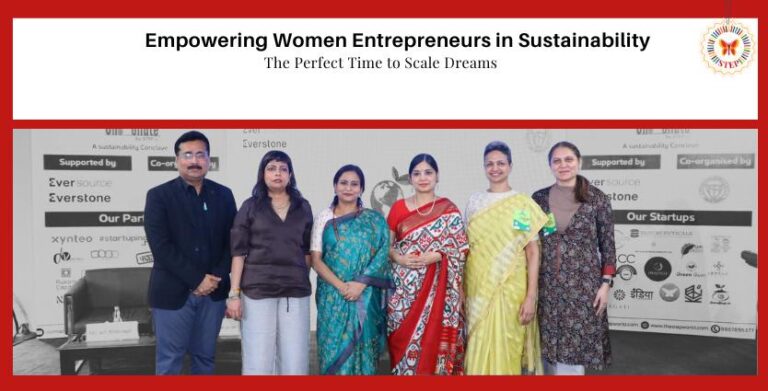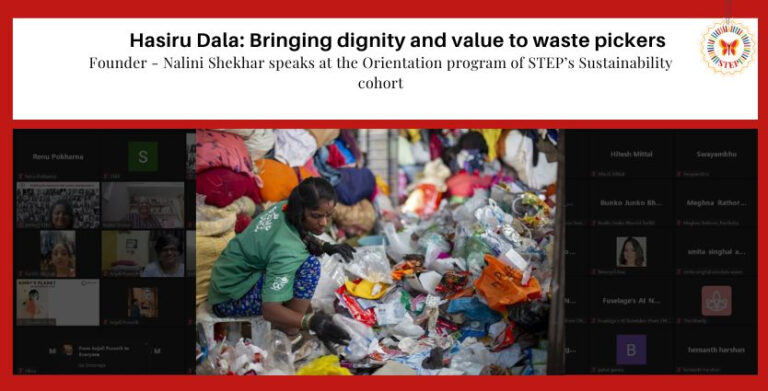In Conversation with Shashi Velath
“The planet needs a different way of living and working. A muscular, aggressive patriarchal male governance is not just the way forward. We require the wisdom and knowledge of all genders to escape the crisis we are facing right now,” says Shashi Velath.
He is the CEO of the Asia-Pacific & Executive Trustee, Executive Director, and Member Board of Trustees at Bridge Institute, a non-partisan and non-profit organization working to build peaceful and inclusive societies.
The journey of the changemaker
Shashi began his career as a field journalist specializing in investigative reporting and war journalism. In his 21 years of journalism journey, Velath exposed corruption and wrongdoing.
“My focus was on public interest and issues close to the citizens of our country, ” he says.
He has covered wars and conflicts within India (the Maoist insurgency, the J&K, and N. E. India conflict) and across Asia (The U.S and allied invasion of Iraq, the Sri Lanka war, Afghanistan, and Tajikistan). He was the only reporter on the ground inside LTTE-held territory in 2009.
He set up India’s investigation unit, CNN- IBN, now known as CNN- News 18. In his tenure as the investigation editor at CNN- IBN, his team won more than 24 Ramnath Goenka Excellence in Journalism awards over 3 years. He won the award for his reporting on N.E. India in 2008.
Shashi moved to the development sector in 2012.
“The media overlooked stories that needed to be told. My kind of journalism was fading out,” he explains.
He led a global human rights organization as its Co-CEO from 2012 to 2015 and moved to Ashoka (Innovators for the Public) to lead the organization’s ‘Framework Change’ vertical in Asia, and then switched over to Bridge Institute, where he started as an Executive Trustee and is now playing multiple roles.
“My role started expanding as the organization’s trajectory moved upwards,” he says.
Bridge Institute
Bridge Institute has developed a pioneering methodology that genuinely takes challenges like education reforms, sustainable food, combating of trafficking of women and children, battling gender-based violence, and peacebuilding.
It aims to bring together all the stakeholders, including the Government, business, and societal organizations, to solve problems.
“We are an organization with tools and processes that facilitate breakthrough thinking and action,” he explains.
They are working in Malaysia on nutrition to find solutions for increasing obesity and diabetes.
Bridge Institute has started a program called Young Leaders Summit with the Government in Singapore to channel the youth’s creative and entrepreneurial energy. The youth get mentored to take up challenges, find solutions, and solve them.
In India, they are running 2 programs:
Kalinga Fellowship Initiative: It is a pioneering and unique tri-sector initiative that provides a forum for senior business leaders, the Government, civil leaders, and passionate individuals to come together in a spirit of collaboration to eradicate the incidents of sexual assault and trafficking of girls in Asia.
“We believe that if we can solve this, we can catapult social attitudes towards ensuring zero tolerance to gender-based violence and rapid making our country truly gender equal”, Velath says.
In 2018-2019, their campaign against gender-based violence run by students in Telangana impacted half a million families. Last year, their anti-child marriage campaign reached half a million families across India.
1000 Leaders Program: It is a capacity-building initiative bringing together youth from politics, civil society, entrepreneurship, academia, and all sections of society to equip them with leadership skills to find meaningful solutions for a more prosperous, safer, and joyous Jammu and Kashmir. They work with the Government, security forces, people of J&K, and social organizations in a transparent framework.
In 2019, they had a cohort of 40, all of whom have emerged as influential societal leaders and role models in their fields. They plan to develop 1000 leaders in the coming years.
“We look forward to developing more people into influencers soon,” he says.
A founder at SDG Changemaker Lab@ School
The initiative provides the school community with expertise, mentorship, and self-financing ideas that inspire the community to take action on sustainable goals and strive for their achievement.
Mission Better Tomorrow works with 1000+ schools in Kerala.
“The idea is to empower young people with change-making opportunities. The youth can solve problems when they learn about change-making at the school level,” he adds.
Need for Gender Equality
Shashi believes that keeping women from taking part in decision-making has created multiple crises in the world. He feels that the problem-solving journey requires an equal partnership of all genders.
“The representation of women in corporate boardrooms, Government, legislative bodies, judiciary, and all other sectors is just not enough,” he says.
He feels these unheard voices need to be heard to create a better world.
“Rights of an individual should not depend on their gender or creed,” he adds.
He feels that women are taking up entrepreneurship in a big way, coming up with better ideas and solving problems through a lens generally overlooked by men. His message to women entrepreneurs is,” You are role models for all women desiring to attain full economic citizenship.”
Importance of cross-sector collaboration
Shashi believes that the world is facing complex problems, volatility, uncertainty, and ambiguity. Apart from the pandemic, terrorism, and wars, there are planetary crises like climate change and sustainability problems and within the country problems like poverty and unemployment.
There is a need for large-scale social change.
“Large-scale transformation is happening through radical collaboration rather than a single agency-driven approach,” he adds.
He explains that collective impact cannot be achieved through a hub-spoke model. We need a model where all stakeholders gather around a common strategic frame in complementary roles and take up different responsibilities for a common purpose. He feels that programs that are invested with some authority like the Government have seen greater impetus and success.
He gives the example of the success of the covid vaccination drive in India.
“The private sector, the private sector hospitals, the primary healthcare mechanism and systems, State Governments, and vaccine manufacturers all worked together for a seamless delivery,” he adds.
Advice to the entrepreneurs in the Development sector
Velath advises entrepreneurs to build a wide network of collaborators.
“Your team is not just those who work with you, but everyone who has a role to play in operationalizing your product or service,” he says.
Development sector entrepreneurs need to evolve a strategic way of working and learn to deploy empathy as a skill.
“Establishing cognitive empathy is the foundational root for creative problem-solving and unleashing radical collaboration,” he asserts.
Experience at STEP
Shashi is a mentor at STEP and feels that mentoring is critical for entrepreneurs as mentors act as sounding boards to bounce and deliberate ideas and ways forward.
He believes an entrepreneur must be fully willing to be mentored and find a mentor whose rhythm matches to get the most out of a mentor-mentee relationship.
He experiences a lot of joy and satisfaction in helping women entrepreneurs achieve their dreams.
“I have had the most wonderful learning journey mentoring entrepreneurs at STEP,” he adds.
Shashi, the person
Shashi is a writer and currently writing his first book on change-making in schools. He describes himself as a strategist and empath. His motivation in life is his passion for change-making. He draws inspiration from Gautam Buddha.
A quote that is the mantra of his life is:
“There are no reverse gears in life.”




